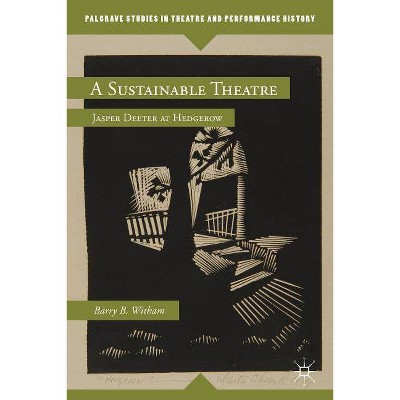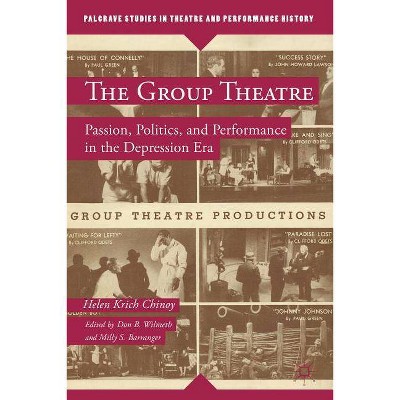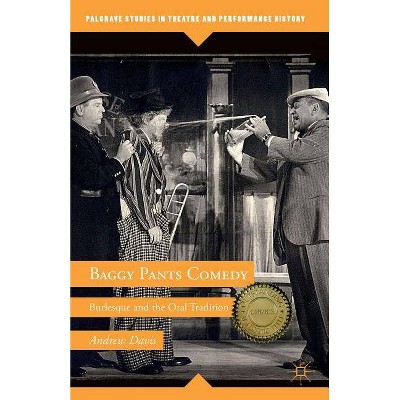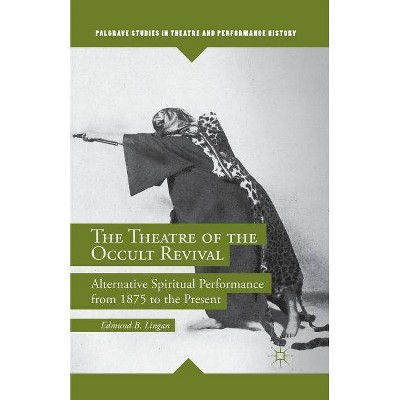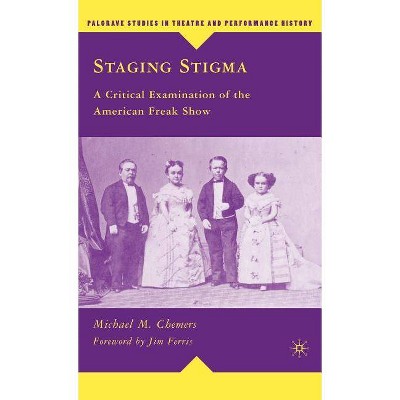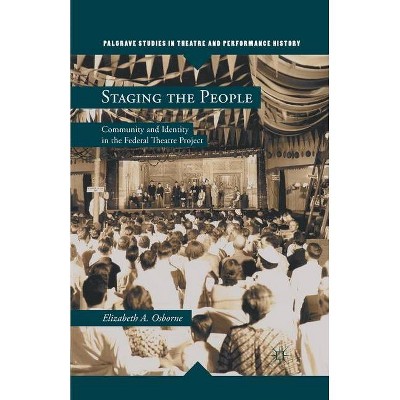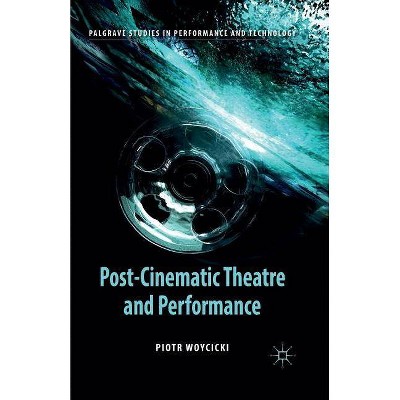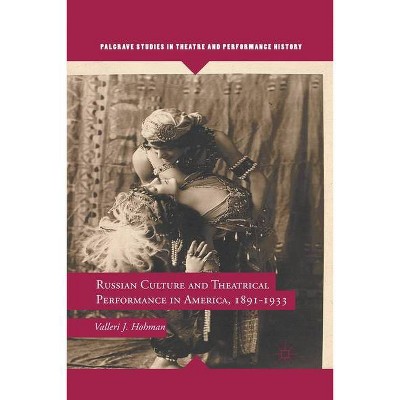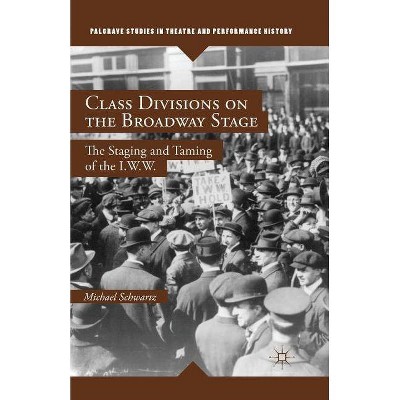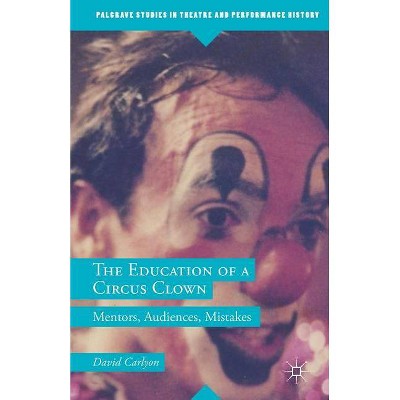Hijikata Tatsumi and Butoh - (Palgrave Studies in Theatre and Performance History) by B Baird (Paperback)
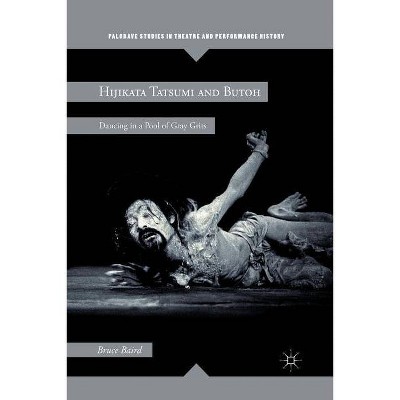
Similar Products
Products of same category from the store
AllProduct info
<p/><br></br><p><b> Book Synopsis </b></p></br></br>Hijikata Tatsumi's explosive 1959 debut Forbidden Colors sparked a new genre of performance in Japan - butoh: an art form of contrasts, by turns shocking and serene. Since then, though interest has grown exponentially, and people all over the world are drawn to butoh's ability to enact paradox and contradiction, audiences are less knowledgeable about the contributions and innovations of the founder of butoh. Hijikata Tatsumi and Butoh traces the rollicking history of the creation and initial maturation of butoh, and locates Hijikata's performances within the intellectual, cultural, and economic ferment of Japan from the sixties to the eighties.<p/><br></br><p><b> From the Back Cover </b></p></br></br><p>Hijikata Tatsumi's explosive 1959 debut Forbidden Colors sparked a new genre of performance in Japan - butoh: an art form of contrasts, by turns shocking and serene. Since then, though interest has grown exponentially, and people all over the world are drawn to butoh's ability to enact paradox and contradiction, audiences are less knowledgeable about the contributions and innovations of the founder of butoh. Hijikata Tatsumi and Butoh traces the rollicking history of the creation and initial maturation of butoh, and locates Hijikata's performances within the intellectual, cultural, and economic ferment of Japan from the sixties to the eighties. </p><p> </p><p/><br></br><p><b> Review Quotes </b></p></br></br><br><p>"The newly published paperback edition of Bruce Baird's ... is perfectly timed to ride the current wave of interest in butoh. ... Baird provides detailed descriptions of all of Hijikata's dances, including quotations from primary sources and records, and with photographs throughout." (William Andrews, The Japan Times, japantimes.com, May, 2016)</p>"The book is a veritable treasure trove of information and reflects the many years it took to complete the project . . . it is also a book which rewards the curious reader who wants to learn about postwar Japan from a different perspective." - Tokyo Notice Board <p/>"A meticulously researched description and analysis of Hijikata's most significant choreographic and textual productions . . . Hijikata Tatsumi and Butoh is a major contribution to the Anglophone literature on butoh, particularly through its extensive referencing and explication of archival materials and texts not available outside of Japan. For scholars of postwar avant-garde Japanese arts, Baird's work brings dance fully into the conversation, particularly with literature and visual art. For butoh dancers, this book is significant for the way Baird challenges the mystification and mythologizing that has grown up around Hijikata (and was indeed often generated by Hijikata himself) . . . Baird presents his readers with the many socially constructed layers of Hijikata that influenced and were reflected in his productions (e.g., the Tohoku of his childhood, Tokyo in the 1960s and 1970s, Japanese and European surrealists and avant-garde artists), while leaving open the possibility of other interpretations. This openness to interpretation is Hijikata Tatsumi and Butoh's greatest gift." - Asian Theater Journal<p> </p><p>"Baird's Hijikata Tatsumi and Butoh offers English-language readers the single most rigorous treatment of Hijikata's work to date, with a meticulous examination of Hijikata's major works from the late 1950s to the 1970s." - Monumenta Nipponica</p><p>"The book is a veritable treasure trove of information . . . which rewards the curious reader who wants to learn about postwar Japan from a different perspective." - SFAQ: San Francisco Arts Quarterly </p><br><br>"The book is a veritable treasure trove of information and reflects the many years it took to complete the project . . . it is also a book which rewards the curious reader who wants to learn about postwar Japan from a different perspective." - Tokyo Notice Board <br/> <br/>"A meticulously researched description and analysis of Hijikata's most significant choreographic and textual productions . . . Hijikata Tatsumi and Butoh is a major contribution to the Anglophone literature on butoh, particularly through its extensive referencing and explication of archival materials and texts not available outside of Japan. For scholars of postwar avant-garde Japanese arts, Baird's work brings dance fully into the conversation, particularly with literature and visual art. For butoh dancers, this book is significant for the way Baird challenges the mystification and mythologizing that has grown up around Hijikata (and was indeed often generated by Hijikata himself) . . . Baird presents his readers with the many socially constructed layers of Hijikata that influenced and were reflected in his productions (e.g., the Tohoku of his childhood, Tokyo in the 1960s and 1970s, Japanese and European surrealists and avant-garde artists), while leaving open the possibility of other interpretations. This openness to interpretation is Hijikata Tatsumi and Butoh's greatest gift." - Asian Theater Journal<p> </p><p>"Baird's Hijikata Tatsumi and Butoh offers English-language readers the single most rigorous treatment of Hijikata's work to date, with a meticulous examination of Hijikata's major works from the late 1950s to the 1970s." - Monumenta Nipponica</p><p>"The book is a veritable treasure trove of information . . . which rewards the curious reader who wants to learn about postwar Japan from a different perspective." - SFAQ: San Francisco Arts Quarterly </p><br><p/><br></br><p><b> About the Author </b></p></br></br>Bruce Baird is Assistant Professor of Asian Language and Literature at the University of Massachusetts-Amherst, USA.
Price History
Price Archive shows prices from various stores, lets you see history and find the cheapest. There is no actual sale on the website. For all support, inquiry and suggestion messages communication@pricearchive.us
